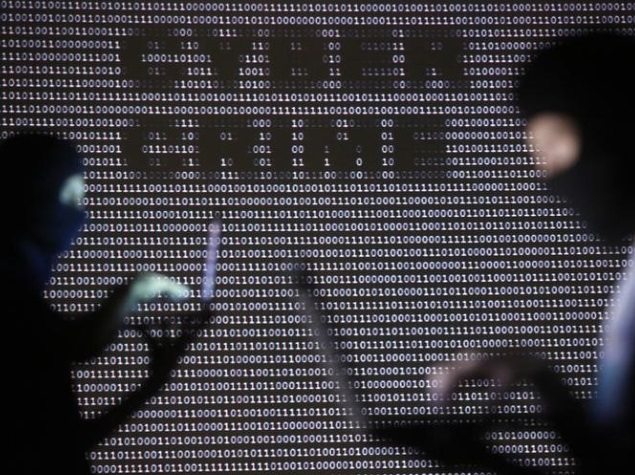- Home
- Internet
- Internet Features
- Medical Data, Cybercriminals' Holy Grail, Now Espionage Target
Medical Data, Cybercriminals' Holy Grail, Now Espionage Target

Whoever was behind the latest theft of personal data from US government computers, they appear to be following a new trend set by cybercriminals: targeting increasingly valuable medical records and personnel files.
This data, experts say, is worth a lot more to cybercriminals than, say, credit card information. And the Office of Personnel Management (OPM) breach revealed on Thursday suggests cyberspies may now also be finding value in it.
Cyber investigators from iSight Partners said they had linked the OPM hack to earlier thefts of healthcare records from Anthem Inc, a health insurance company, and Premera Blue Cross, a healthcare services provider. Tens of millions of records may have been lost in those attacks.
All three breaches have one thing in common, said John Hultquist of Dallas-based iSight. While cyber-espionage usually focuses on stealing commercial or government secrets, these attacks targeted personally identifiable information.
The stolen data "doesn't appear to have been monetised and the actors seem to have connections to cyber-espionage activity", said Hultquist, adding that none of the data taken in the earlier attacks had turned up for sale on underground forums.
A source close the matter said US authorities were looking into a possible China connection to the breach at OPM, which compromised the personal data of 4 million current and former federal employees.
Several US states were already investigating a Chinese link to the Anthem attack in February, a person familiar with the matter has said.
China routinely denies involvement in hacking, and on Friday a spokesman for the Foreign Ministry in Beijing said suggestions it was involved in the OPM breach were "irresponsible and unscientific".
Hultquist said iSight could not confirm that China was behind the attacks, but similar methods, servers and habits of the hackers pointed to a single state-sponsored group.
Black market flooded
Security researchers say that medical data and personnel records have become more valuable to cybercriminals than credit card data.
The price of stolen credit cards has fallen in online black markets, in part because massive breaches have spiked supply.
"The market has been flooded," said Ben Ransford, co-founder of security start-up Virta Laboratories.
The result: medical information can be worth 10 times as much as a credit card number.
Fraudsters use this data to create fake IDs to buy medical equipment or drugs that can be resold, or they combine a patient number with a false provider number and file made-up claims with insurers.
State-sponsored hackers may not be after money, but would also be interested in such data because they could then build a clearer picture of their target.
That, said Philip Lieberman of security software company Lieberman Software, would increase the chances of any targeted email attack, or spear phish, successfully obtaining confidential data.
Others said that, given the data affected included job histories, those targets might be in other government departments. "It's likely this is less about money and more about gaining deeper access to other systems and agencies," said Mark Bower of HP Security Voltage, a data security company.
This interest in more granular data is pushing hackers of all stripes into more inventive ways of penetrating the defences of hospitals and other institutions holding such data.
TrapX, a cyber-security company, said it had discovered criminal gangs from Russia and China infecting medical devices such as X-Ray systems and blood gas analysers to find their way into servers from which they stole personnel and patient data.
Other security researchers agreed this kind of attack was becoming more common.
Billy Rios, founder of security company Laconicly, said he had found infected systems while working with several healthcare organisations. "Clinical software is riddled with security vulnerabilities," he said.
A survey by think-tank the Ponemon Institute issued last month said that more than 90 percent of healthcare organisations surveyed had lost data, most of it to hackers.
"This is going to get worse before it gets better," said Carl Wright, of TrapX, which discovered the breaches via medical devices.
© Thomson Reuters 2015
Catch the latest from the Consumer Electronics Show on Gadgets 360, at our CES 2026 hub.
Related Stories
- Samsung Galaxy Unpacked 2025
- ChatGPT
- Redmi Note 14 Pro+
- iPhone 16
- Apple Vision Pro
- Oneplus 12
- OnePlus Nord CE 3 Lite 5G
- iPhone 13
- Xiaomi 14 Pro
- Oppo Find N3
- Tecno Spark Go (2023)
- Realme V30
- Best Phones Under 25000
- Samsung Galaxy S24 Series
- Cryptocurrency
- iQoo 12
- Samsung Galaxy S24 Ultra
- Giottus
- Samsung Galaxy Z Flip 5
- Apple 'Scary Fast'
- Housefull 5
- GoPro Hero 12 Black Review
- Invincible Season 2
- JioGlass
- HD Ready TV
- Laptop Under 50000
- Smartwatch Under 10000
- Latest Mobile Phones
- Compare Phones
- Red Magic 11 Air
- Honor Magic 8 RSR Porsche Design
- Honor Magic 8 Pro Air
- Infinix Note Edge
- Lava Blaze Duo 3
- Tecno Spark Go 3
- iQOO Z11 Turbo
- OPPO A6c
- Lenovo Yoga Slim 7x (2025)
- Lenovo Yoga Slim 7a
- Lenovo Idea Tab Plus
- Realme Pad 3
- Moto Watch
- Garmin Quatix 8 Pro
- Haier H5E Series
- Acerpure Nitro Z Series 100-inch QLED TV
- Asus ROG Ally
- Nintendo Switch Lite
- Haier 1.6 Ton 5 Star Inverter Split AC (HSU19G-MZAID5BN-INV)
- Haier 1.6 Ton 5 Star Inverter Split AC (HSU19G-MZAIM5BN-INV)







![[Sponsored] Haier C90 OLED TV | Dolby Vision IQ, 144Hz OLED and Google TV in Action](https://www.gadgets360.com/static/mobile/images/spacer.png)









